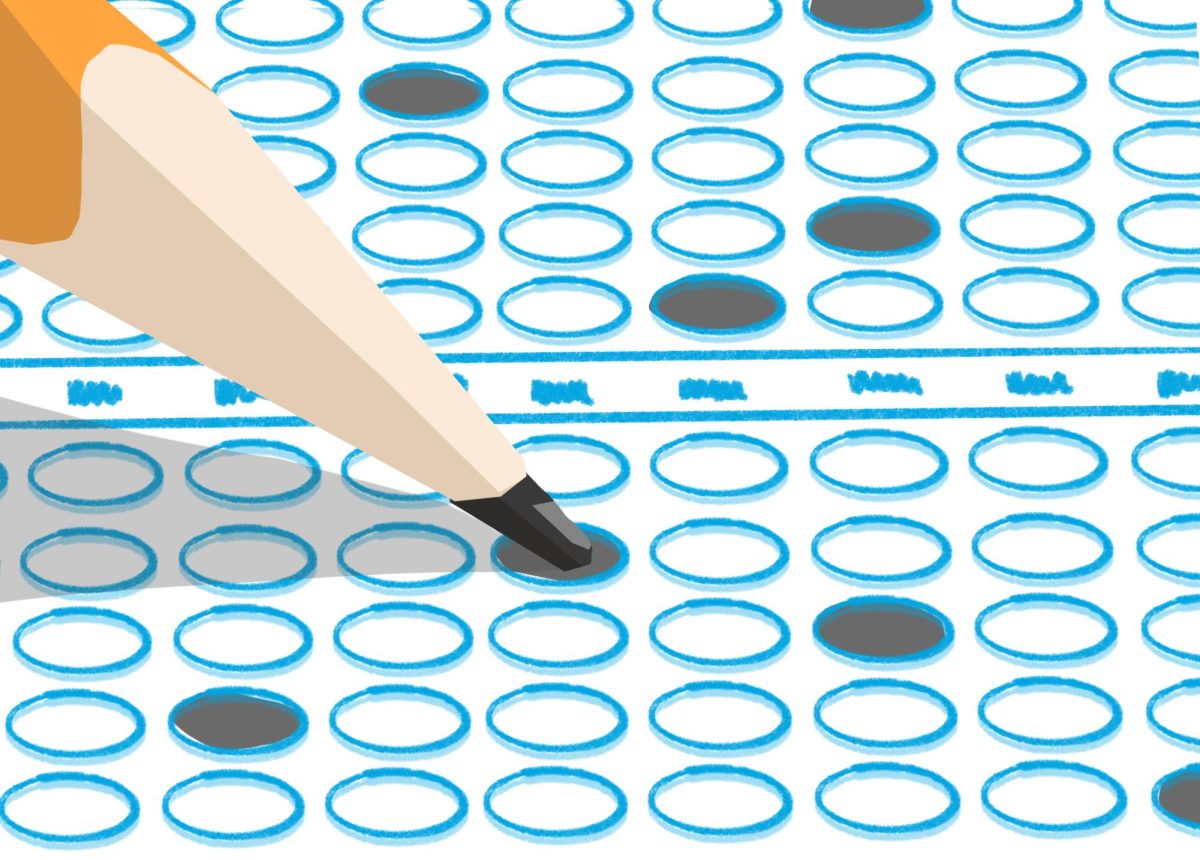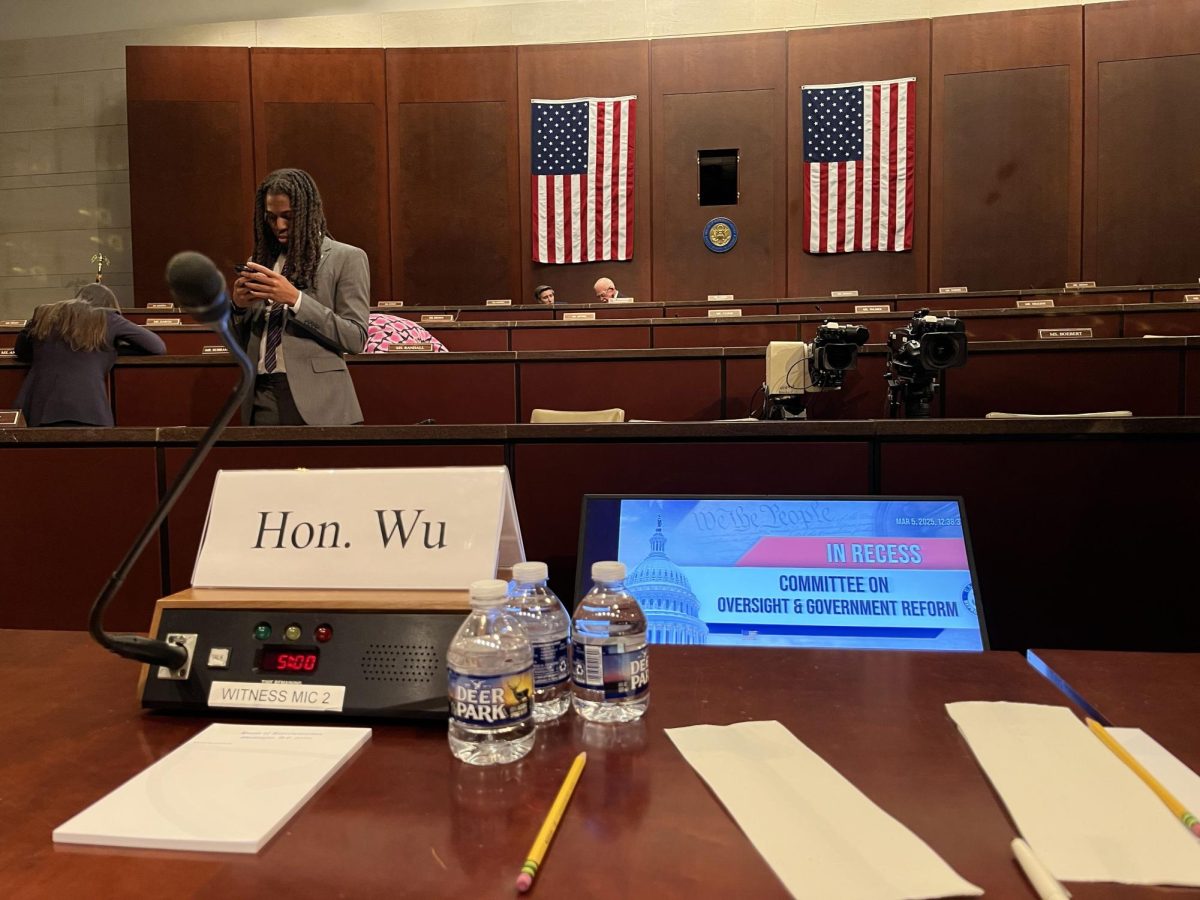Come Nov. 5, Massachusetts residents will not only be asked to vote in the wildly contentious presidential election between Vice President Kamala Harris and former President Donald Trump; voters will also weigh in on five ballot measures covering a range of topics from potentially legalizing psychedelics to instituting a minimum wage for tipped workers.
If passed, Question 2 on the ballot would repeal the Massachusetts Comprehensive Assessment System, or MCAS, exam as a standardized graduation requirement for high school students in Massachusetts.
The main proponent and top donor for passing Question 2 and repealing the “high-stakes” MCAS exam is the Massachusetts Teachers Association, or MTA.
In opposition are Governor Maura Healey, Massachusetts Secretary of Education Patrick Tutwiler and the Massachusetts Business Alliance for Education.
While Massachusetts has had the MCAS graduation requirement since 1993 when it was first implemented as a part of the Massachusetts Education Reform Act, groups including the MTA, Massachusetts PTA and others say that a standardized multiple-choice test is not a fair way to evaluate student achievement.
“Using this one time standardized test as a way to determine who gets a diploma and who does not is punitive,” MTA President Max Page said. “It hurts individual students and hurts our educational mission.”
Advocates for Question 2 say a change is necessary for the success of their students.
“We need a reset in public education,” Massachusetts State Senator and Chair of the Joint Committee on Higher Education Joanne Comerford said. “Because of the Student Opportunity Act, we have more money going more equitably to districts that need it. Now, we have to look at the ways in which we’re evaluating excellence — to meet the needs and opportunities of students.”
Massachusetts is currently one of eight states in the country that require a “passing” score on a standardized, three-subject test to receive a high school diploma. Many other states, including New York and California, have opted to remove this requirement.
“More and more states are fleeing high-stakes, standardized testing,” Comerford said.
Results from this year’s MCAS scores reveal less students received passing scores on their exams than in previous years, likely a result of the Massachusetts Board of Elementary and Secondary Education’s 2022 decision to raise the bar for what is considered a passing score.
This year, 21% of students failed the English Language Arts portion of the exam on their first attempt. Eighteen percent of students failed the math portion, and 20% of students failed the science portion.
Page said that it is not students’ fault for the decline in passing rates. The blame rests on the state, he said.
“People are looking at [the scores] and going ‘Oh students aren’t doing that well. Now, students are learning less.’ That’s not the case,” Page said.
Each year, more than 700 students statewide are not able to receive a diploma despite meeting their school’s other graduation requirements. Page said that this number is likely to grow in coming years.
“There are demographic shifts that are happening in the state,” Page said. “We have more English language learners. They are likely to have new challenges, which make it harder to succeed on some of those tests, especially English Language Arts.”
In 2021, 89.8% of all students graduated in four years, according to state data. While this is slightly higher than the national average of 87%, many believe that more can be done to help students succeed.
Massachusetts House of Representatives member and former high school math teacher Jim Hawkins supports Question 2.
“A multiple-choice test is the worst measure of student achievement,” Hawkins said.
Many teachers feel pressure to teach only the material tested in MCAS rather than include other content. Hawkins said that when he taught geometry, he would skip chapters of the textbook that were not included in the MCAS exam.
“[MCAS] has narrowed the curriculum, and it has taken away from authentic learning by having teachers focus more on test taking skills,” Page said.
Opponents of the measure believe that MCAS is the only objective measuring stick Massachusetts has to gauge students’ fitness for graduation.
The “No on 2” coalition writes on its website that “eliminating the graduation requirement would massively harm these students.”
Opponents say that repealing the MCAS graduation requirement will result in more than 300 different standards for graduation, potentially causing unequal evaluations of students’ readiness for higher education or careers.
In response, school districts and teacher unions have turned their support to a new performance indicator they believe is an improved replacement for MCAS.
“We still need standardized testing,” Hawkins said. “When we say we want to remove MCAS as a graduation requirement, that doesn’t mean there’s no graduation requirement. It just means that MCAS is the wrong thing to use.”
The Massachusetts Consortium for Innovative Education Assessment, or MCIEA, is focused on creating this new model of assessment.
“We’ve come up with something designed in the classroom that’s a performance-based test, which would mean group work and projects,” Hawkins said. “This is the way we teach, this is the way we should assess. It makes perfect sense.”
In addition to educators’ interest in an MCIEA assessment, Comerford says there is legislative interest in the proposed MCAS replacement.
“It’s more nuanced, there’s deeper student engagement, there’s deeper educator engagement — the outcomes look terrific,” Comerford said. “It can and should be the way forward.”
In November, voters will decide what they believe is the best course of action for students, educators and the state.
The Huntington News is dedicated to serving the Northeastern University community with original, professional reporting and creating an environment in which student journalists can learn from one another. Support an independent, free press at Northeastern University with your donation today.











